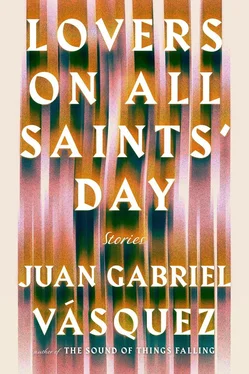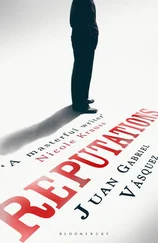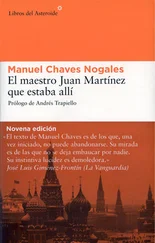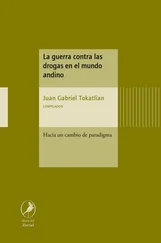Juan Gabriel Vásquez
Lovers on All Saints' Day
I DIDN’T LEAVE BELGIUM much during that season. I spent the time observing the people of the Ardennes and participating in their activities, and then learning to write what I’d seen in such a way that as little of it as possible would be squandered. In February, a Colombian magazine commissioned me to write an article about a certain Parisian bookshop. French trains went directly to Paris from Liège, but they’d gone on strike two weeks earlier and there was no resolution in sight. So I had to take an old orange train from Aywaille station — a switch in every second car allowed passengers to control the heating — a green one from Liège, and spend the night in the house of a couple of friends in Brussels, in order to catch the first direct train to Paris the next morning. I arrived at the bookshop, stayed there for several days lending a hand as an occasional assistant, and wrote my article. But what happened during the night I spent in Brussels will haunt me forever.
Philippe came to pick me up at the main station, the most inhospitable of the three possible terminals for Liège trains. He was wearing a plaid beret and thick-framed glasses, which he took off to hug me, and on both sides of his nose were red marks from the weight of them. Philippe and Claire had been married the summer before; he was then (at the time of my ill-timed visit) an out-of-work actor. According to what Claire had told me over the phone, he was going through a rough patch: a good contract for a French film had just been canceled due to lack of funding; his first wife was threatening to sue if he didn’t hand over half the value of the house in Zaventem, where they’d lived before separating. I didn’t talk to him about any of this, because we didn’t have that kind of rapport, but in his face — on certain occasions when I asked a polite question, in the grimace with which he waited for a light to change — I could read his preoccupation. We parked right in front of 287 Rue du Noyer; we smelled freshly baked bread as we got out of the car, and this odd fact (it was four in the afternoon) gave us something to talk about during the following uncomfortable minutes. They were uncomfortable because Claire wasn’t there: she spent the afternoons in her studio and she had asked me to meet her after seven, to see her latest works and have dinner with her and the people with whom she shared the workshop. They were uncomfortable also because of the incident with the flowers, which in another place, in other circumstances or backed by a different past, might have struck me as slightly odd or banal. On the rough wooden table that served as both dining table and ironing board there was an arrangement of Spanish azaleas with a single sunflower. There was also a typed card: it was the color of raw meat, and around the border were blue watercolor marks. BEST WISHES, it said on the embossed cardboard.
“My father-in-law,” said Philippe.
He said beau-père , pronouncing the consonants loudly, and smiled with the kind of sarcasm I hadn’t thought him capable of. Then he didn’t say anything else. The house was tall and narrow (four stories, but each floor was barely four meters wide); Philippe excused himself and began to climb the creaking stairs, one after the other, as if he needed all his patience to get up to the master bedroom on the third floor, above the study where the only phone in the house was, beneath the guest room where I would be spending the night.
—
THE PREVIOUS AFTERNOON, Philippe’s father-in-law, Claire’s father, the owner of the house in the Ardennes where I was living temporarily, had come looking for me to take advantage of an unusual circumstance: a late-winter day when the sun was shining.
“The lake is waiting for us,” he said. “Hurry, there’s not much light left.”
Monsieur Gibert did not wait for my answer. He turned around and the sleeve of his jacket snagged on the angular doorknob. A couple of minutes later, I heard the engine of his four-by-four start up.
The lake was an artificial pond that Monsieur Gibert had built to irrigate a cabbage crop, but the crop failed before it got started, and now the only purpose the lake served was for the occasional distraction of a stubborn retired farmer who stocked it with his own trout, which he later fished. Monsieur Gibert carried a Sander rod in his gloved hand and I followed him, eyes fixed on the green water, on the marshy shore, on the heads of the frogs that shone like floating coins and escaped with small commotions when they saw us coming. I sat down on a beech log. Monsieur Gibert put on his bifocals and moved his skilled fingers over the end of the line and over the three sharp hooks of the lure, silver-plated and hard and shiny in the long rays of the afternoon sun. His left hand closed around the cork handle and his index finger held the line against the rod. He drew his arms to one side, and the momentum of the rod cut through the air and the reel sounded like a child sighing as it spun, and ten meters from the shore the lure broke the surface, with delicacy, as if worried about waking a sleeping frog.
“I want you to keep your eyes open,” he said.
“They’re open, monsieur.”
“At their house,” he said. “I want you to notice everything, and then tell me. How they live. If she’s all right, if he treats her as she deserves to be treated.”
All this he said to me as his right hand turned the handle, reeling the line back in. We weren’t looking at each other: we both had our eyes fixed on the sinker and lure sailing toward us like a bullet in slow motion, causing a fragile wake on the surface and emerging upon arrival at the shore. Monsieur Gibert had never been to his daughter’s house. They’d invited him once, and he’d come up with some unimaginative and rather banal excuse. I knew this because Claire told me, imitating her father’s nasal voice, his falsely solemn gestures. Gibert had never made this impression on me; Claire’s complaints made me feel uncomfortable, because I feared her resentments might be contagious. For Claire, everything that happened in her life was the result of what her father had ruined, wasted, or frittered away (emotions, not money).
Gibert stripped tangled plants off the lure. The weeds stuck to the hairs on the back of his hand. He cast again.
“I’m going to tell you something sad,” he said. “Philippe’s not good for my daughter. I mean, he’s a good man, but he has problems.”
“But they’re not definitive, monsieur. He’ll find work.”
“Work?”
“He’s got a job offer in Montpellier,” I lied. “For the summer. They’ll pay well, it’s street theater.”
“His father’s a drunk,” he said. “His sister’s husband beats her up all the time.”
He reeled in his lure. He took off two or three little green branches, which looked like asparagus. He cast again.
“His sister, I mean, not Claire. His sister’s husband beats his wife.”
“Yes, monsieur. I knew what you meant.”
“And him, with his first wife, all that… Anyway, it’s all a big mess. That’s what I mean. A chaotic mess.”
Then, as he reeled in the lure, the line hardened like a glass tube. “Ah,” said Gibert. His hand wound the reel, and two steps away from us a brownish-gray trout appeared, thrashing in the water. Gibert lifted the line, the trout changed color in midair and fell onto the grass on the shore, and the pink flecks on its side looked brighter.
“Here, hold this.” Gibert passed me the rod without taking his eyes off the fish. “We’ll throw this one back, it’s just little.”
Читать дальше










